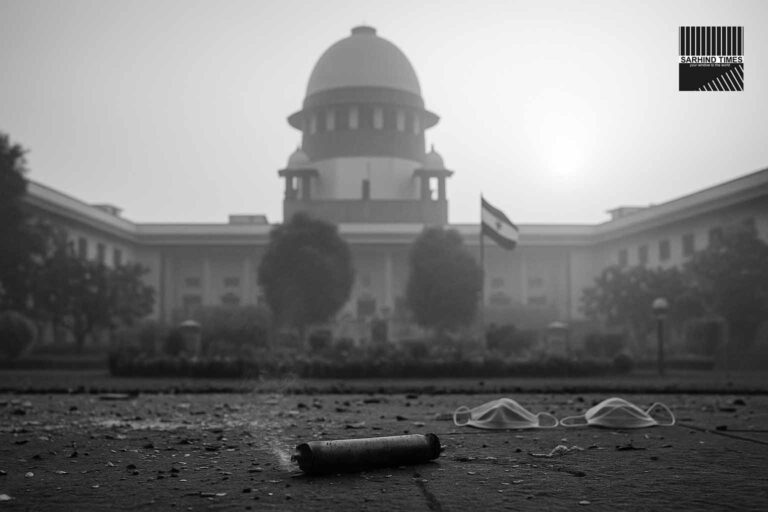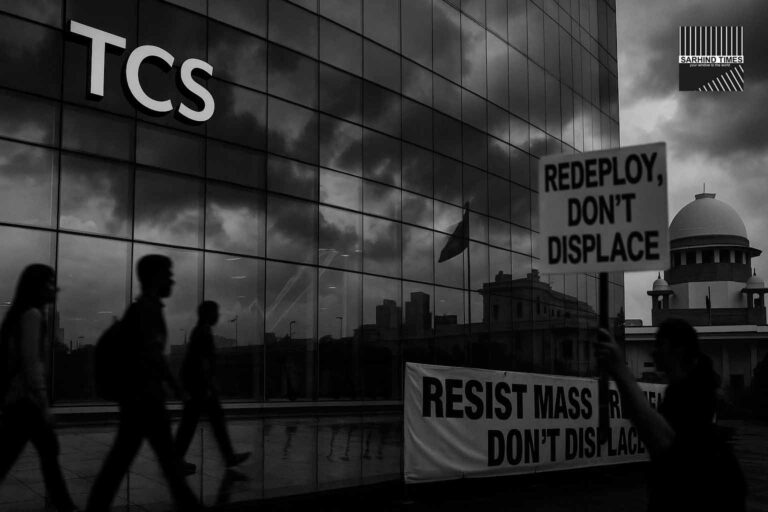The Supreme Court of India has delivered a significant judgment that could reshape the contours of financial crime investigations under the Prevention of Money Laundering Act (PMLA). On Thursday, the Court dismissed the Enforcement Directorate’s (ED) appeal against a Madras High Court order that had quashed its probe and property attachments in an alleged illegal sand mining case in Tamil Nadu.
While the case revolves around sand mining, its implications extend far beyond one industry or state. At its core, the judgment underscores the importance of due process, statutory thresholds, and judicial safeguards in curbing the sweeping powers often attributed to the ED.
This article takes an in-depth look at the case, its legal background, the Supreme Court’s reasoning, reactions from legal experts and political circles, and what it means for the future of financial crime enforcement in India.
The Case: Illegal Sand Mining in Tamil Nadu
Sand mining has long been a controversial issue in Tamil Nadu, where environmental degradation, illegal cartels, and political patronage intertwine. In this particular case, the ED initiated investigations, attaching assets on the basis of suspected proceeds of crime arising from alleged illegal mining operations.
However, the Madras High Court in a detailed 66-page judgment last year struck down the ED’s actions, holding that:
- There was no prior, properly investigated “scheduled offence” to trigger the PMLA.
- The ED failed to establish clearly determinable proceeds of crime.
The ED appealed the ruling, arguing that its powers under PMLA allowed proactive investigation even in cases where predicate offences were under scrutiny.
The Supreme Court’s Ruling
In dismissing the ED’s appeal, the Supreme Court invoked its landmark judgment in Vijay Madhanlal Choudhary v. Union of India, which clarified the limits of the ED’s jurisdiction. The Court reiterated that:
- Predicate offence is essential: PMLA cannot stand independently; it requires the existence of a scheduled offence investigated by the relevant agency (police, CBI, etc.).
- Proceeds of crime must be determinable: Vague or speculative links to alleged illegal gains cannot justify PMLA attachment or prosecution.
- Judicial scrutiny is non-negotiable: Courts must guard against investigative overreach.
By affirming the Madras HC’s reasoning, the apex court reinforced the doctrine that money laundering prosecutions must be rooted in substantive evidence, not mere suspicion.
Why This Matters
1. For the ED
The ruling curtails the agency’s tendency to begin proceedings before predicate offences are crystallized. This forces the ED to coordinate more closely with state police and other investigative bodies.
2. For State Governments
Sand mining, often plagued by corruption, may now face more transparent oversight. However, states may worry about enforcement gaps if ED’s role is restricted.
3. For the Judiciary
The judgment cements the judiciary’s role as a balancing force between investigative zeal and individual rights. It signals that courts will not hesitate to intervene when due process is bypassed.
4. For Citizens and Businesses
It strengthens protections against arbitrary asset seizures, particularly in sectors where regulation and corruption overlap.
Reactions from Legal Experts
- Senior Advocate (Delhi): “This is a reaffirmation of the rule of law. The ED cannot be allowed to act without statutory prerequisites. The Court has drawn a line in the sand.”
- Former Judge (Madras HC): “The sand mining context is incidental. What matters is the principle that money laundering cases cannot be built on thin air.”
- Legal Scholar: “It is part of a growing judicial trend to temper the ED’s powers after years of criticism regarding opacity and lack of accountability.”
Political Ramifications
Tamil Nadu’s ruling party hailed the verdict as a vindication, suggesting the ED had been weaponized against opposition-ruled states. The BJP countered that the ruling does not absolve individuals of wrongdoing and stressed that new investigations could still proceed if statutory conditions are met.
At the national level, opposition parties seized upon the verdict to highlight concerns of “selective enforcement” by central agencies. Meanwhile, legal circles anticipate that ongoing PMLA cases in mining, real estate, and liquor industries may now be re-examined through this lens.
Sand Mining: An Endless Problem
Beyond the courtroom, the ruling puts the spotlight back on sand mining itself—an industry rife with illegality, environmental damage, and exploitation of river ecosystems. Reports have long indicated that unchecked sand mining erodes riverbanks, disrupts groundwater recharge, and devastates local livelihoods.
With ED’s powers restricted, the onus shifts back on state governments to regulate mining through local police, revenue authorities, and environmental watchdogs. Civil society organizations argue this is an opportunity for reform rather than a setback.
Broader Implications for PMLA
The Prevention of Money Laundering Act has been one of the most contentious laws in India’s legal landscape. Critics argue it grants the ED extraordinary powers of arrest, attachment, and search without sufficient accountability. Proponents claim it is vital to fight black money and terror financing.
This ruling recalibrates that balance:
- It does not dilute the ED’s power in cases where predicate offences are clear.
- It prevents misuse in cases where investigations are politically motivated or procedurally weak.
- It may set a precedent for other cases where attachments have preceded predicate-offence trials.
Looking Ahead
The immediate impact will be felt in Tamil Nadu, where several sand mining-related probes are ongoing. But nationally, the decision signals a trend of judicial intervention to check investigative excesses.
Future amendments to PMLA may arise from this ruling, particularly to tighten definitions of “proceeds of crime.” Meanwhile, courts across India are likely to cite this judgment in reviewing ED actions.
The case also raises an important question: Can India design a framework that balances strong enforcement with due process? The answer will determine not just the fate of financial crime investigations, but also public trust in the justice system.
Conclusion
The Supreme Court’s ruling is more than just a setback for the ED in one sand mining case. It is a landmark reaffirmation of due process, constitutional safeguards, and judicial oversight. By insisting on a clear predicate offence and determinable proceeds of crime, the Court has drawn vital guardrails around the PMLA’s scope.
For Tamil Nadu, it is a chance to clean up sand mining with state-level accountability. For India, it is a reminder that the fight against money laundering must never compromise the fundamentals of justice.
#SupremeCourt #ED #PMLA #TamilNadu #SandMining #RuleOfLaw #Judiciary #LegalReform #IndiaLaw #DueProcess





















+ There are no comments
Add yours